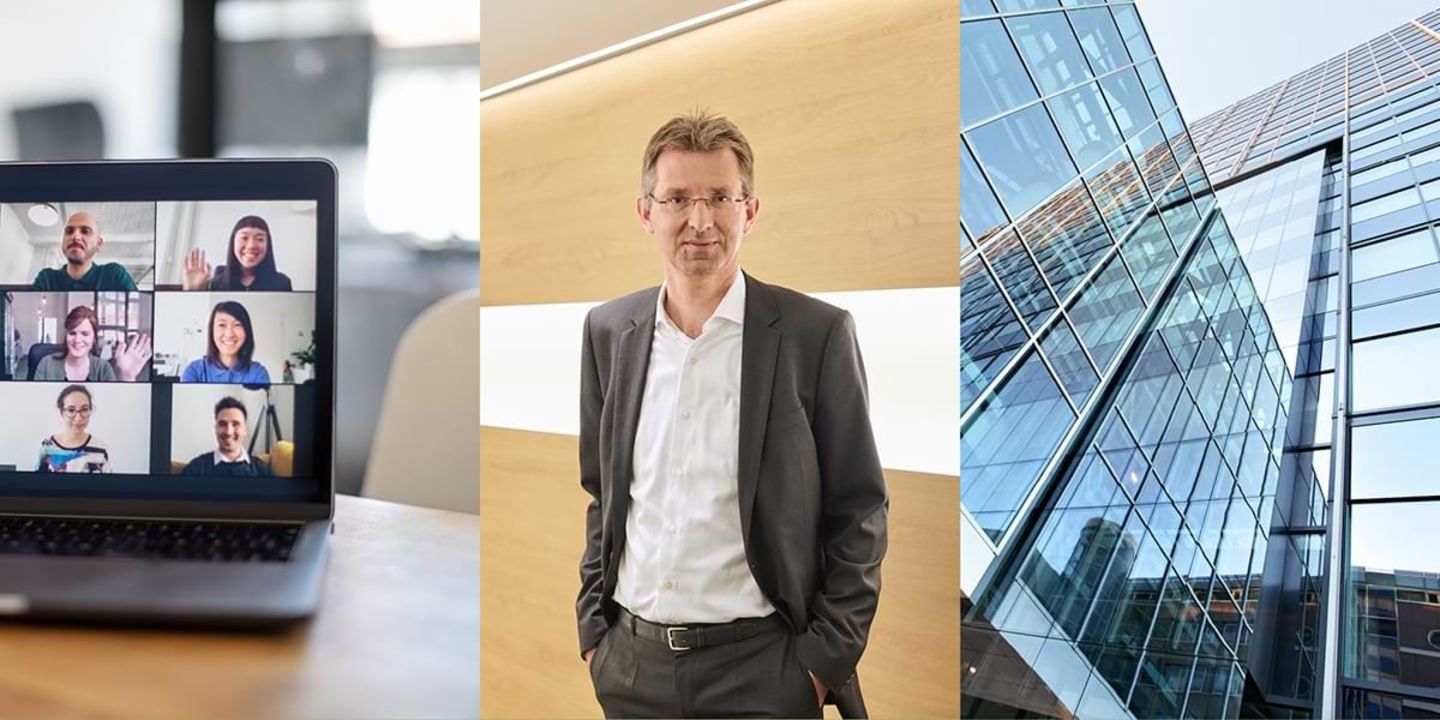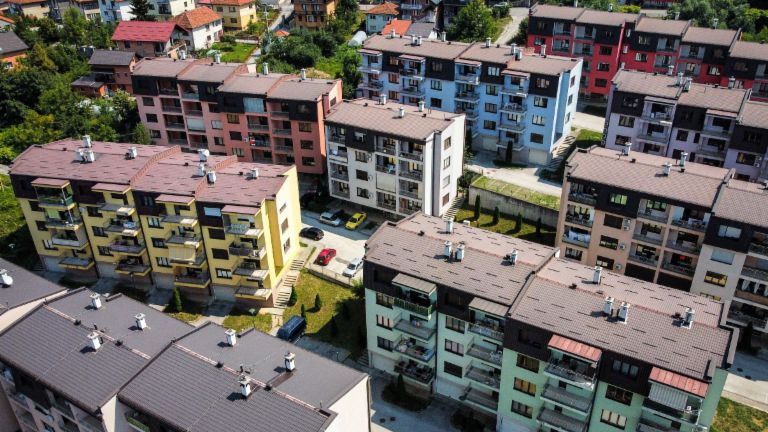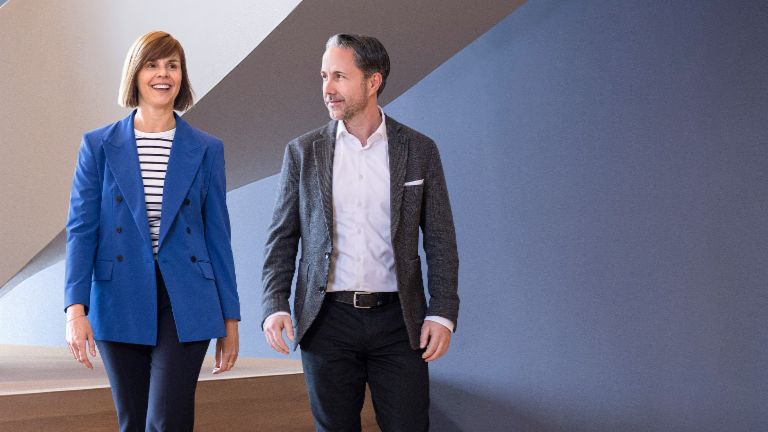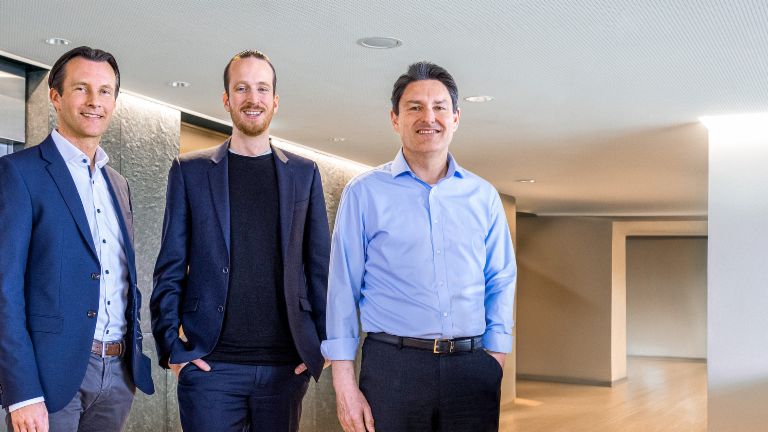Fiscal 2020/21: “We’ve learned a huge amount this year.”
With government-imposed moratoriums, closed courts and canceled auctions, the debt collection business was also hit hard by the COVID-19 pandemic. A look at the figures for fiscal 2020/21 shows that EOS nevertheless weathered the crisis well. In this interview, Justus Hecking-Veltman, CFO of the EOS Group, tells us what makes EOS so resilient and how the company aims to exploit new opportunities after this exceptional year.
- In fiscal 2020/21, revenue and new business declined slightly at EOS in the course of the COVID-19 crisis.
- Nevertheless, the company’s business model proved to be clearly profitable. With an equity ratio of more than 35 percent, EOS was also able to show what a stable partner it is, even during a year of crisis.
- In fiscal 2020/21, EOS once again invested heavily in debt purchases and the ongoing development of its IT and organization.
- In the NPL segment, the company was once again able to smash through the half a billion euro mark. Investments in secured debt portfolios meanwhile account for 30 percent of this business.
How did fiscal 2020/21 go? What were the positives and the negatives?
JUSTUS HECKING-VELTMAN: The COVID-19 crisis has affected the entire world and resulted in many personal tragedies. This affected us and our workforce as well. While dealing with the associated sad news, we were able to quickly adapt the daily work routine to the new situation and switched our entire business operations to remote working. Naturally, as a result of the crisis, combined with the moratoriums and high degree of uncertainty on the markets, we also had much less new business and lower revenues. However, by successfully counteracting this with cost-saving measures, the reduction in earnings was within acceptable limits and the company remained clearly profitable even in this year of crisis.

What were the greatest highlights or successes?
Firstly, I think that switching the Group to mobile working was a great success, and our many colleagues in the IT departments did an outstanding job. This has also given an enormous boost to our digital transformation process. The virtual collaboration within the Group has made us even closer as an organization. And in 2020 in particular, despite the new working situation, there were many examples of operational excellence in both the new business segment and our ongoing operations. From my perspective this is what is so special about our success. Not only does it show that we have a fantastic team, but we have proven yet again, as we did during the 2008/2009 financial crisis, that our company is a stable and resilient partner.
We have proven yet again, as we did during the 2008/2009 financial crisis, that our company is a stable and resilient partner.
How did the pandemic affect the business and what can EOS learn from this?
As an organization we have learned a huge amount this year! On the operational side in particular, we were faced with a wide range of restrictions that were responsible for the decline in new business and noticeable reductions in revenue. To name just a few: Courts were closed, auctions canceled, physical meetings and property visits were hampered, and travel was almost impossible. We reacted promptly to all this and adapted rapidly. For example, we were able to further improve our digital communication and group-wide collaboration and successfully handle many projects. And if we can now manage to combine the best from the time before the pandemic with the new things we have learned in the interim, we will take a major leap forward that would otherwise have taken us much longer.
How has the market changed in the various countries or regions?
We operate in North America and Europe, where in most countries, governments were and are countering the global coronavirus crisis by means of a huge financial effort, including the introduction of moratoriums. This means that borrowers who cannot service their loans due to the crisis are not in default, and their lenders also cannot terminate the loan agreements during this period. This has substantially cushioned the financial consequences for many people and prevented even greater losses. However, as a result of this, the volume of non-performing loans fell temporarily, which obviously made the market conditions and business outlook more difficult for us.

What were the greatest financial challenges in the past year?
From a financial perspective, the spring of 2020 was particularly challenging. Nobody knew how the situation was going to evolve. What we had to do was use various scenarios to evaluate the potential effects and make the right investment decisions on this basis with a view to securing our earnings. Especially where we lost business due to moratoriums etc., our organization and projects had to be adapted to the new situation. For some time here we had to proceed with caution and continually make adjustments at short notice.
Which investments were especially helpful for the company’s ongoing strategic development?
In the last financial year I believe that the key factors for us were primarily two forms of investment: Investment in debt purchases and investment in IT and organizational development. In respect of debt purchases, every deal signed is the result of a lot of very careful assessments and work on the associated contracts. We are proud of every single transaction and I don’t want to single out any deal in particular in this context. However, overall it is worth stressing that we have once again invested over half a billion euros. With regard to spreading the risk, it was also satisfying that we were able to further increase the diversification of our investments, in respect of the countries and products involved. This was aided in particular by the growth in secured receivables. In the meantime, the secured portfolio segment accounts for 30 percent of our assets under management that we were able to further increase overall. As regards investment in IT, operational core systems are being rebuilt in a lot of areas, which will allow us to manage our operations even more efficiently using digital tools in future. We have made good progress in this area in the last financial year.
In the course of the year the situation in Europe and North America will gradually settle down and we will progressively get the crisis under control.
How did the company’s capital base, which has been very strong until now, perform during this unusual year?
We were able to further increase the assets under management, while maintaining a stable capital structure and equity ratio of more than 35 percent. We are part of a family-owned company that takes a long-term approach and doesn’t think in terms of quarters. This provides stability and at the same time imposes an obligation on the management to do business reliably and sustainably.
And finally: What is your forecast for the current financial year?
I’m an optimist. In the course of the year the situation in Europe and North America will gradually settle down and we will progressively get the crisis under control. Following the depressed market, I expect substantial growth in new business again, for 2022 in particular. As a financial investor we are in any event preparing ourselves for this scenario. In part due to new technologies, EOS as an organization will definitely emerge stronger from the crisis: with new market opportunities, more digital capabilities, new realization strategies and automated processes. All of this gives us the opportunity to work even better together within the Group in future and to share our knowledge efficiently. Our new business will also pick up in the second six-month period and there will be a clear increase in revenue and earnings. This all makes me very optimistic about the fortunes of EOS and the sector in general.
Contact
Photo credits: EOS / Shutterstock / GettyImages
Explorez davantage EOS



